The content of the article
When repnits appear on the street, and this can happen as early as March, it is customary to make a wish, and, as many people claim, it comes true.
These lepidopterans belong to the family of whiteflies, and their closest relatives are limonnitsa and cabbage.
What a butterfly looks like
These butterflies do not differ in large size: wingspan is from 3 to 6 cm. It has 8-pair legs, of which 5 are located in the peritoneum, 3 - chest.
The color of the wings of the male of this species is distinguished by the fact that it has a very noticeable yellow tint, and sometimes bright orange. In females outfit is much more modest - unremarkable light green, and some white. On close examination, all representatives of the family can notice very small inclusions in the central part of each front wing on the outside. The male has one, the female has several.The rear wings are clean, they have no pattern. On the lower surface of the wings color is pale yellow.
The body of the repnas is green, and a thin yellow line runs along the back, interrupting, with a darker shade. On the sides of the line is light yellow.
Places of residence
Comfortable most repnits live in places where there are many shrubs and tree thickets. But, if it is too dense forest, then it deters these butterflies, as they prefer open spaces. Because of their large accumulation can be found in the meadow, forest edges. They settle down and near the sea. But perhaps their most favorite places in the fields and gardens, especially if cabbage grows there, are the greatest delicacy of these butterflies, which are pests of cultivated plants.
If repnits have chosen a place to live in mountainous areas, then it usually does not exceed more than 2,000 m above sea level.
Lifestyle
Repnits are diurnal. Of all the Lepidoptera, they are the most resistant to cold. Proof of this is the fact that they are active in October, and they can be seen everywhere, and in March they again delight people with their flights, announcing that the frost has ended, and again it is warm.
Reproduction repn - bisexual. If the male flutters, making intricate pas, it means that the marriage time has come, and it is time to attract a partner to play offspring. After mating, it is time to lay eggs.
They can postpone their females one by one. They are kept on the leaf due to gluing to the leaves or stalks. And although all the eggs are at a distance from each other, they can often be up to 200, but it happens that the number reaches 500.
Recognize these small eggs by color with a very pale yellow, fawn, or white. They are oval in shape, and more elongated at the edges. The development period is not more than a couple of days.
In May days, rarely in June, caterpillars appear. Their body has no hairs, a body with a smooth structure. This stage lasts about a month. During this time, the caterpillar feeding is not overkill: they eat only the deciduous part of the plants, the most appetizing.
The caterpillar development takes about a month, and during this time it replaces five ages. At this time, lives on the outer part of the leaves. If during this period he feels any danger, he raises the front part of the body, but at the same time he pulls in his head. The menacing posture is complemented by a change in body color. A bright red color appears, plus the caterpillar can release a caustic liquid.
Adults feed on the fact that they collect nectar from various plants.
Harm to cultivated plants
The larvae of repnits can inflict the greatest damage on cultivated plants if they are located in the garden. Particularly attractive is their cabbage - both cauliflower and white cabbage, as well as radish and turnip, rutabaga and horseradish. But also wild herbs become objects of their numerous feasts. This is rezeda, shepherd's purse and other plants.
First, the caterpillars eat the very edges of the leaves, leaving a gluing sclera that spreads over the entire surface. Then he gets to the head, gnawing in his turn and leaving a selection. As a result, the rotting of the vegetable begins. Because people come up with various methods, how to deal with such a pest.

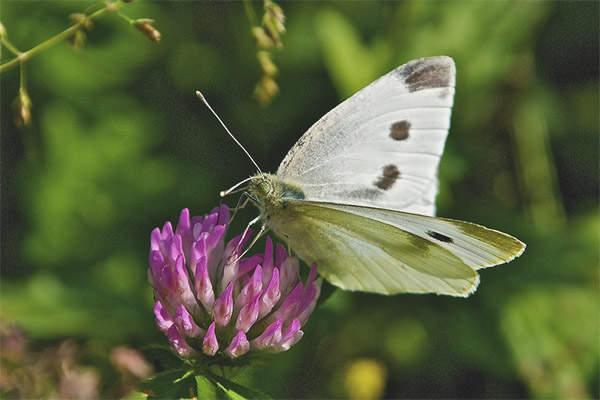
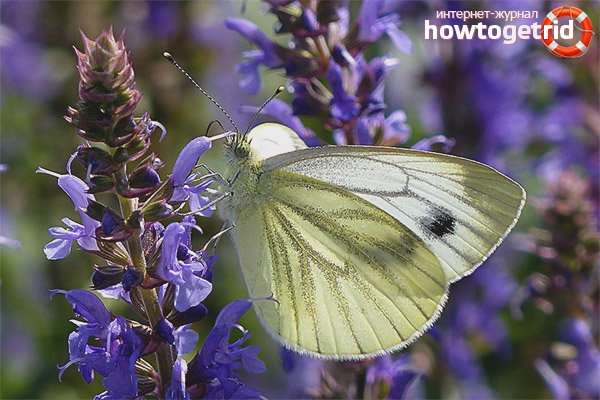

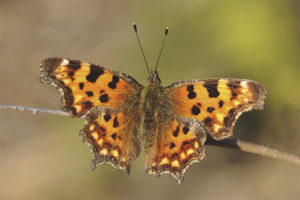
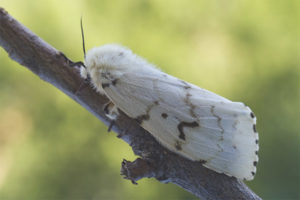
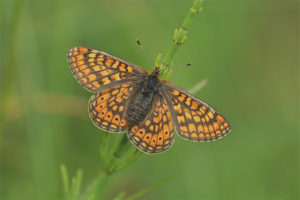
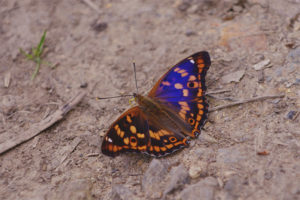
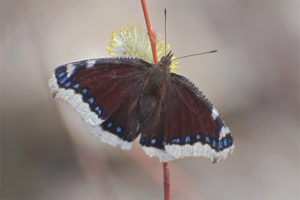
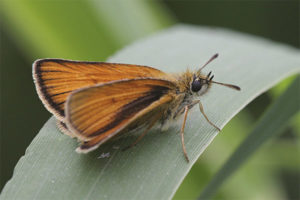
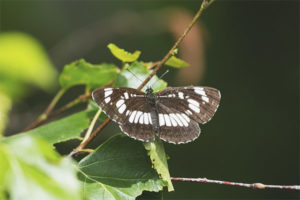
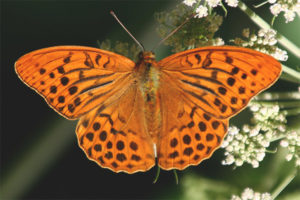
To send